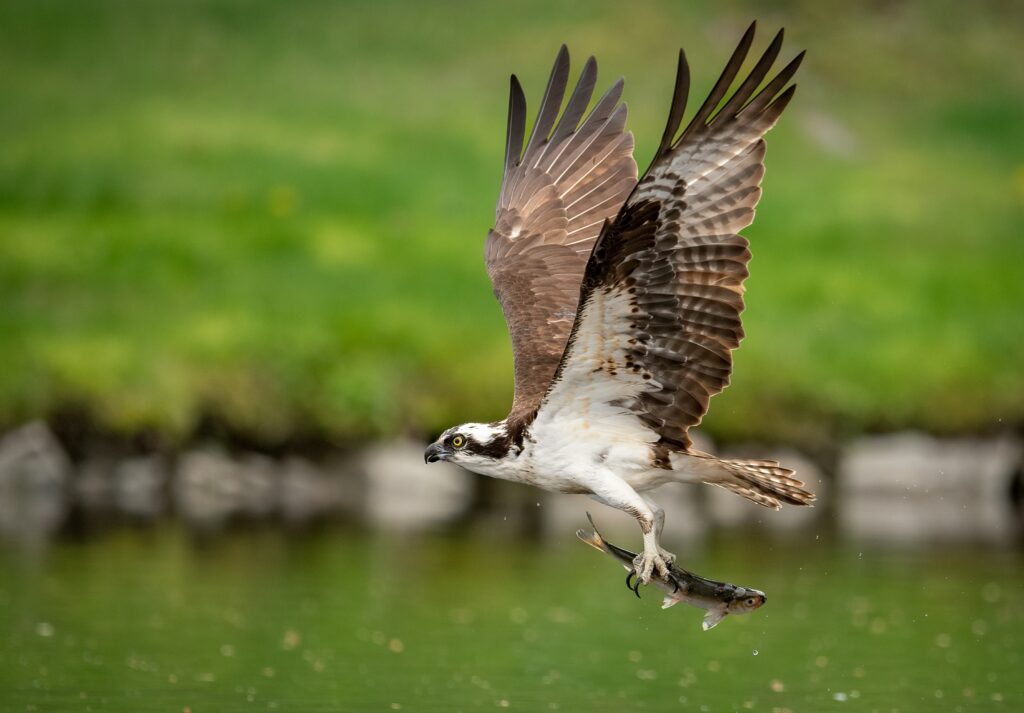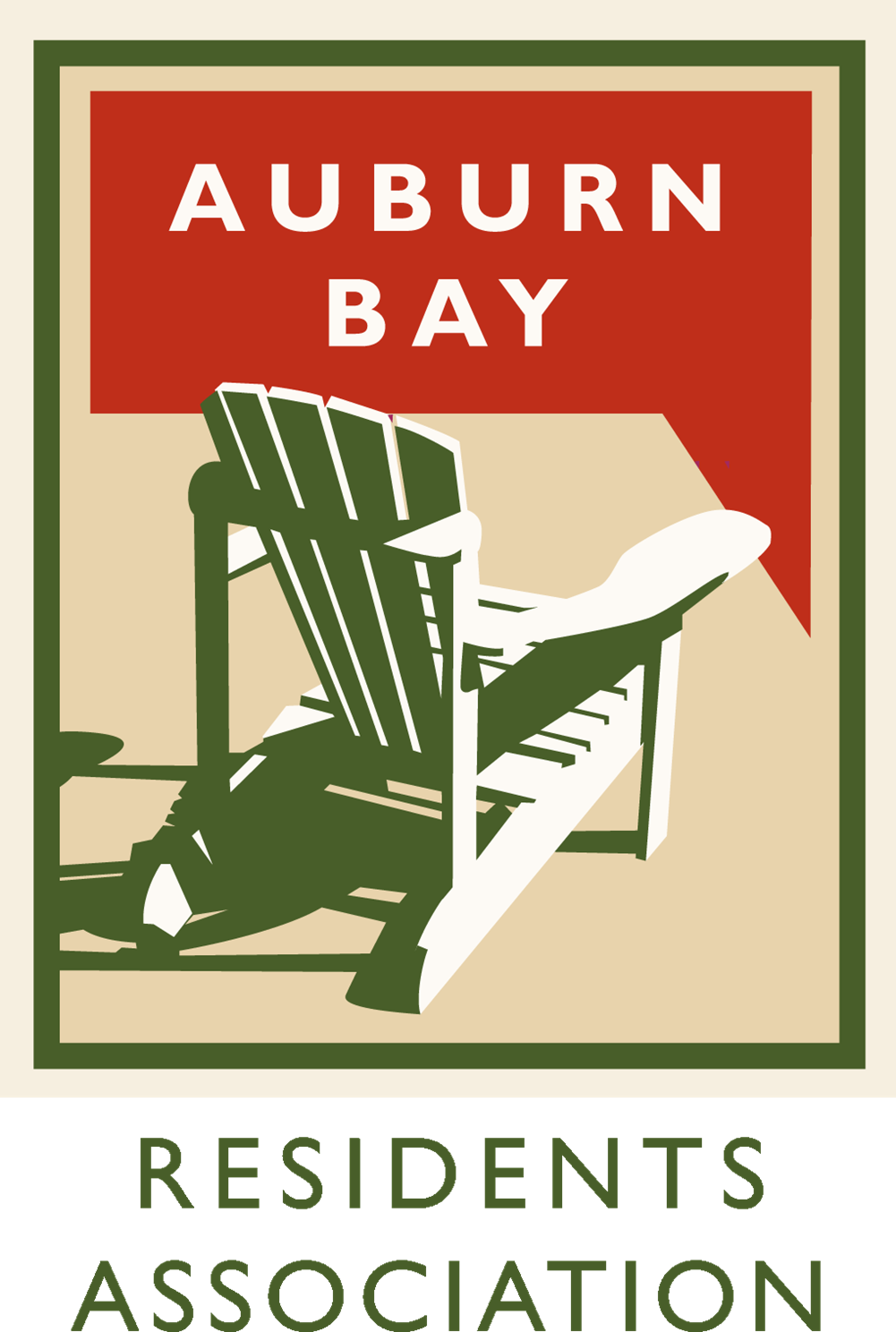Wildlife in Auburn Bay
Wildife in Our Area
Deer are occasionally encoutnered in Auburn Bay. Although they aren’t typically considered dangerous, they may see people and dogs as a threat and can act aggressively to protect themselves or their fawns
What Can I Do if I Experience an Aggressive Deer?
If you experience an aggressive deer incident, defined as “deer chasing, or kicking, at a person or pet resulting in damage or injury,” you should contact the Report-A-Poacher line immediately at 1-800-642-3800 and be able to report the location of the aggressive animal. The Report a Poacher line is monitored 24/7 and a wildlife officer will determine if further action is required.
Fawning Season – It Is Normal For Fawns To Be Left Alone
In order to keep her young safe, a doe will leave her fawn in a secluded area, often for as long as 12 hours, distracting predators away from her baby while she forages for food. Fawns’ camouflage and their ability to remain still keep them safe from predators while their mother is away.
If you notice a fawn on its own, please don’t approach it. Concerns about the welfare of the animal can be relayed to Fish & Wildlife by calling 403-652-8330.
Coyotes are common throughout the city. They help control populations of other wildlife, especially rodents and rabbits, from becoming problematic. A healthy population of coyotes is indicitave of a healthy, biodiverse ecosystem.
If there is a conflict, or if a coyote seems aggressive or approaches you:
- Do NOT run away.
- Scare the coyote by shouting and waiving your arms overhead.
- Bang sticks or clang pots together at the animal.
- Maintain eye contact and back away slowly.
Coyotes and pets – How to keep all animals safe
- Keeping your pets away from coyotes will keep them safe.
- In the off-leash park, if coyotes are present or in the area, keep your dog leashed. Keep them leashed in all other areas.
- Keep your cats indoors! This protects the cats from coyotes and songbirds from cats.
- Pick up your dog poop – it attracts coyotes.
Discourage coyotes on your property
- Close/block areas under porches, decks or steps.
- Clean up compost, garbage and other food sources.
- Pick up fallen fruit and seed around bird feeders.
- Don’t store food outside.
- At night, keep pets secured in your hard, or inside your home.
- Don’t leave pets unattended in your yard.
When to report coyote sightings or encounters
- In an emergency situation where there is immediate danger, call 9-1-1.
- For non-emergency situations and to report coyote sightings, please call 3-1-1 or report online.
Skunks are fairly common in our community. They are omnivores, eating both insects and plants. In an urban environment skunks can be quite opportunistic, getting into pet food, garbage, and compost. To deter skunks on your property, ensure that holes under decks and outbuildings are blocked.
To control skunks on private property, contact a pest control company.
- Keep yourself, children and pets a respectful distance from nests.
- If a fledgling young falls out of their nest, leave it alone! Birds of prey are very protective and will dive-bomb to protect their young.
- Do not allow very small dogs to play outside unspervised and keep your cat indoors, especially at night.
Contact Fish and Wildlife if:
- you are concerned for your own safety or the safety of others.
- If domestic animals on your property are being preyed upon.
Every season we have migrating birds that come through our community and often times, they use our lake as a resting point. Not only can this can be detrimental to our lakes ecosystem, but many of these birds are carriers of diseases like E Coli and Salmonella.
The ABRA takes measures to deter migrating birds from making their home on and around our lake, such as using a scare gun, our Paw Patrol program, and more. We encourage also encourage residents to deter the birds from their property.
While cougar sightings in Auburn Bay are rare, we are very close Fish Creek park where there have been sightings. If you do see a cougar in your community, call 1-800-642-3800 (Alberta Fish & Wildlife) or report it online.
If you are in a life threatening situation, call 9-1-1.
Bobcats are typically very shy when they’re in the wild, however the ones that we see in our community are becoming more habituated to living among humans.
In order to deter bobcats from taking residence in your yard you can take the following measures:
- Remove food, shelter or whater that may attract them to your property.
- Do not feed wildlife.
- Keep your garbage in containers that have tight fitting lids.
- Do not leave pet food outdoors.
- Remove any bird feeders and/or bird baths so that bobcats are not drawn into your yard by birds.
- Keep trees, shrubs and grass trimmed and close off spaces underneath decks and outbuildings so that the bobcat has nowhere to hide.
- Add motion detector lighting to walkways and driveways.
- Keep small pets indoors. Ensure any pets that live outside are kept in a secure enclosure with a strong roof.
When to call Fish & Widlife
Not all bobcat sightings need to be reported to Fish & Wildlife. Only ccall and report them if you are concerned for your safety or the safety of others.
You can call the City at 311 to report any sightings. It helps them make better choices in regards to land management.
Report a Poacher: 1-800-642-3800

Wildlife Tips
- Do not feed wildlife as they become dependent on it, and learn habits that can harm them or cause conflicts with humans.
- Keep your distance when you spot any wildlife. By giving them room you reduce the chance of any conflict.
- Be mindful of your pets! Keep them leashed when you’re not in off-leash designated areas (i.e., dog park).
- Clean up after your pets. This can help reduce wildlife being attracted to the area by the food source.
- Secure your property and ensure that you remove any food, dispose of garbage and compost in bins, and put up barriers to keep animals from using your property as a shelter.
